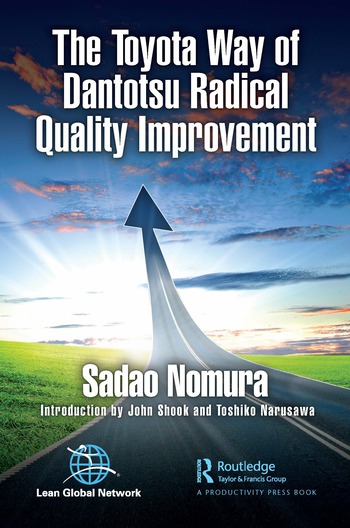Many lean leaders and coaches do value stream mapping, kaizen events, and other quality improvement projects in support of continuous improvement. And yet they invariably encounter what is perhaps the biggest (forgive the technical term) bug-a-boo: sustaining lean standard work and steady flow.
I believe the key factor that prevents disruptions in flow and sustains standard work is the psychology of kaizen mind. Each of the techniques that we’ve tried over the years seem to invariably encounter its own failure mode. The useful practice of visioning can become too distant to prompt tangible improvements. Promoting a culture where folks can “just do it” can be degraded by entropy. Corporations have invested bazillions in lean training, only to find that most employees don’t transfer lean ideas to their job. Standard work loses its allure over time without any social reward attached to it. Cultural norms and symbols lack sufficient salient features to gain traction. And the lost production that is a tradeoff for (essential) regular reflection emerges as an argument to halt fruitful continuous improvement.
What are we missing?
I believe the key factor that prevents disruptions in flow and sustains standard work is the psychology of kaizen mind. Most authors and lean experts, if they have considered kaizen mind, consider it a “hunger” for improvement, or a drive to achieve stretch goals. These ideas tend to be more appealing to managers than to employees, who after all must sustain new lean work processes.
Kaizen mind is an individual’s mindfulness, learning to see “what is,” the processes actually happening in doing the work fused with innate creativity. Once mindfulness is evoked, it can be focused by leaders and coaches on reducing process waste, on creating flow and on improving quality at the source. Problem is, many employees’ mindfulness has been repressed by an overly rational and risk-averse management culture, one that plays the blame game. Manager who blame periodically “go negative” because fear gets people moving, but the tactic agitates employees’ minds, stirring up the “mud” of negative emotions which then clogs their natural bandwidth of awareness. So leaders and coaches need to help job performers and teams rediscover their capacity for mindfulness to see waste in work processes and then encourage them to try creative solutions to reduce it.
Years ago a partner and I were tasked by our sensei to eliminate waste in a piston machining line during a kaizen event. In the midst of the line, two employees were loading and unloading pistons from a large, high-volume, solvent washing machine. We tried various experiments to eliminate the bottleneck, like stacking and loading the pistons differently and reducing the number of racks, but we became stuck. Finally, we sat in front of the machine, disconsolate at the idea of disappointing our sensei.
When we stopped overthinking the problem (the ninth waste!), an idea arose. I asked my partner, “What if we reduced the lot size and simply asked the operator wash and dry several pairs of pistons in aOnce mindfulness is evoked, it can be focused by leaders and coaches on reducing process waste, on creating flow and on improving quality at the source. bucket of solvent?” We tried it and calculated that one employee could meet the takt time, and after the lab okay’ed the bucket method on cleanliness, we pushed the high-volume “monument” machine, one that the accountants surely loved but the operators openly hated, against a far factory wall. When the sensei arrived, he grunted and said “um, good”. He then told us to reduce the inventory space and move on to resolve the next biggest constraint.
That day I discovered kaizen mind, and it has has never left me.
Over tea after a mindfulness meditation session, I once heard the teacher joke that he was just “selling water by the river.” It’s a laugh because mindfulness is a skill that’s always in their student’s capacity, if they will but open their minds. Similarly, what we as lean leaders and coaches are really doing in continuous improvement is evoking employees’ innate capacity for mindfulness and focusing it on improving the work itself.
We’re selling water by the river.
Dan Prock is the author of the forthcoming book, The Sensei Way at Work: The Five Keys to a Lean Business Transformation.





